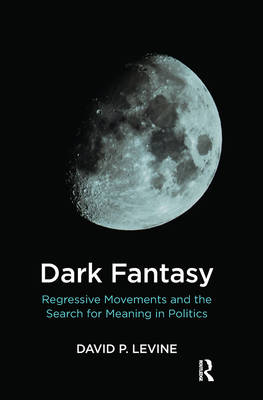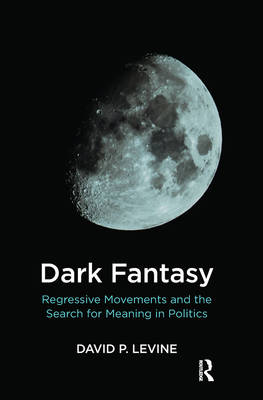
- Afhalen na 1 uur in een winkel met voorraad
- Gratis thuislevering in België vanaf € 30
- Ruim aanbod met 7 miljoen producten
- Afhalen na 1 uur in een winkel met voorraad
- Gratis thuislevering in België vanaf € 30
- Ruim aanbod met 7 miljoen producten
Zoeken
Dark Fantasy
Regressive Movements and the Search for Meaning in Politics
David P Levine
Hardcover | Engels
€ 182,45
+ 364 punten
Omschrijving
Recent trends in politics culminating in the US with the election of Donald Trump both provoked and expressed a troubling intensification of emotion in the body politic. Heightened levels of anger, frustration, and distrust, the dismissal of the norms of politics and policy making, and the prevalence of intractable conflict indicated an increase in the power of regressive forces. The power of these forces takes the form of dark fantasies involving the loss, indeed the destruction, of safe space, the prevalence of existential threat, and the corrosion of the kinds of relationships that make living in the world tolerable. This book explores the emotional meaning of regressive movements in contemporary politics with special reference to Trump and his supporters. Its main hypothesis is that the primary goal of these movements is not to restore a lost world of safety and wellbeing as they claim it is, but to make their members' experience of the destruction and loss of that world universal.
Specificaties
Betrokkenen
- Auteur(s):
- Uitgeverij:
Inhoud
- Aantal bladzijden:
- 132
- Taal:
- Engels
Eigenschappen
- Productcode (EAN):
- 9780367104412
- Verschijningsdatum:
- 14/06/2019
- Uitvoering:
- Hardcover
- Formaat:
- Genaaid
- Afmetingen:
- 152 mm x 229 mm
- Gewicht:
- 399 g

Alleen bij Standaard Boekhandel
+ 364 punten op je klantenkaart van Standaard Boekhandel
Beoordelingen
We publiceren alleen reviews die voldoen aan de voorwaarden voor reviews. Bekijk onze voorwaarden voor reviews.











